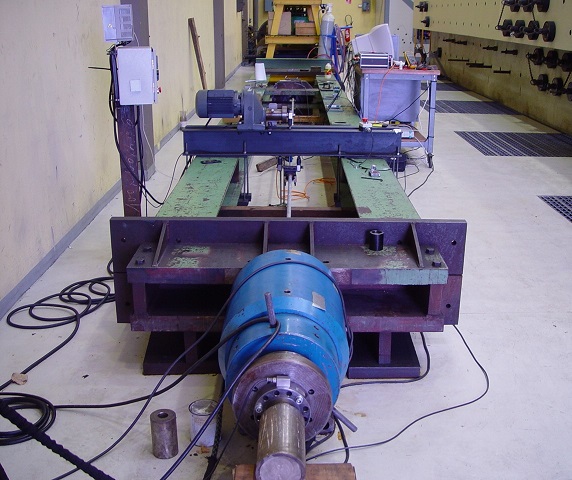Full-scale cable tests
The SMC laboratory has unique facilities at both the national and international level for the characterization of civil engineering and EMR (marine renewable energy) cables. Its most significant equipment is a large-scale facility of the Gustave Eiffel University, the Cable Fatigue Test Bench, which allows for fatigue tests on full-scale cables. It is integrated within the experimental platform Theorem, shared between the Ecole Centrale de Nantes, IFREMER, and the Gustave Eiffel University. This platform is part of the roadmap for the TGIR (Very Large Research Infrastructures) of the MESRI (Ministry of Higher Education, Research and Innovation).

The Cable Fatigue Testing Machine
The Cable Fatigue Testing Machine (BFC) allows for testing of full-scale civil engineering cables or tubular geometry technical systems under monotonic or cyclic loads. The University Gustave Eiffel acquired this unique equipment in France in 1989. Historically, it was dedicated to fatigue resistance tests of cables and anchoring of pre-stressed, suspended, cable-stayed bridges, and more recently, offshore installations. The latest developments of the equipment allow for complex fatigue testing by combining tensile and flexural forces.
Static part: 3 hydraulic cylinders, maximum load of 24,000 kN, stroke: 0 to 1 meter.
- Dynamic part: available cylinders of 1,000 kN, 2,000 kN, stroke: 0 to 200 mm. Video system: 5 fixed cameras and 2 PTZ cameras.
Instrumentation: Acoustic sensors, detection, and localization, etc.
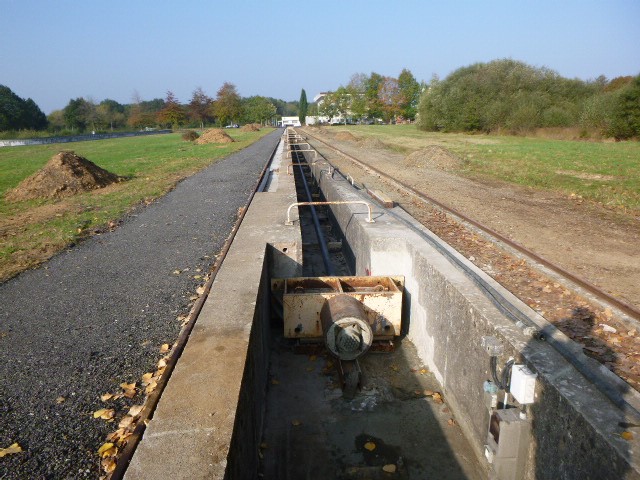
The 200-meter test bench
The 200-meter test bench allows for tensile testing (monotonic or cyclic) on cables with a maximum length of 200 meters. Its reinforced concrete civil engineering design allows for the reduction of sample size. This testing facility remains considerable and unique in its kind.
- Length: 200 meters, intermediate anchorages at 50 meters, 150 meters, and 200 meters.
- Force cell: 5000 kN
- Stroke of the actuator: 3 meters.
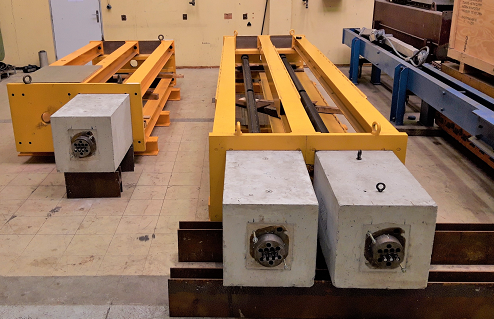
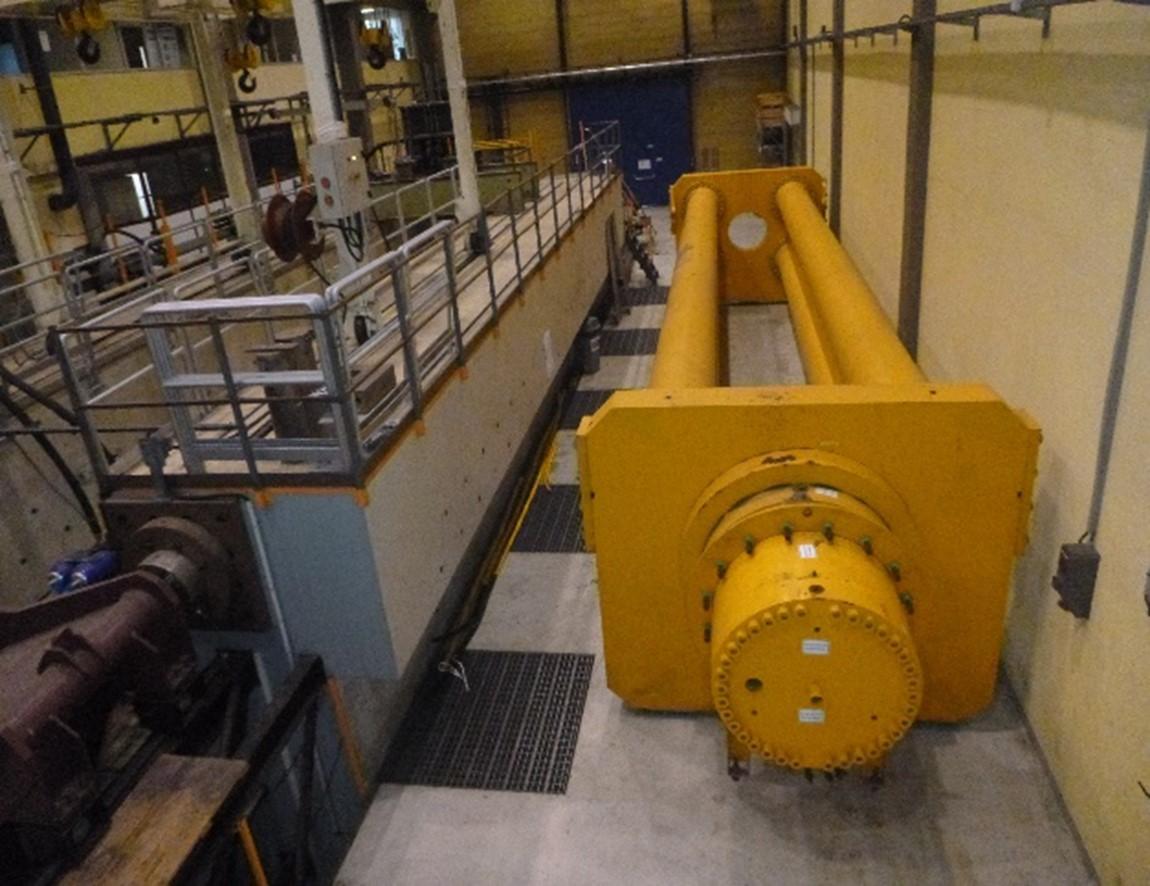
Test bench of 20 MN
Gustave Eiffel University has just acquired a new testing rig. A 20MN traction test bench. It is able to test samples of length 9 m, width 1 m, height 2 m (Chains/links, flexibles/umbilicals/risers, metal cables and slings). It is suitable for carrying out monotonous requests.
- Hydraulic cylinder stroke: 250 mm
- Load cell: 20000 N
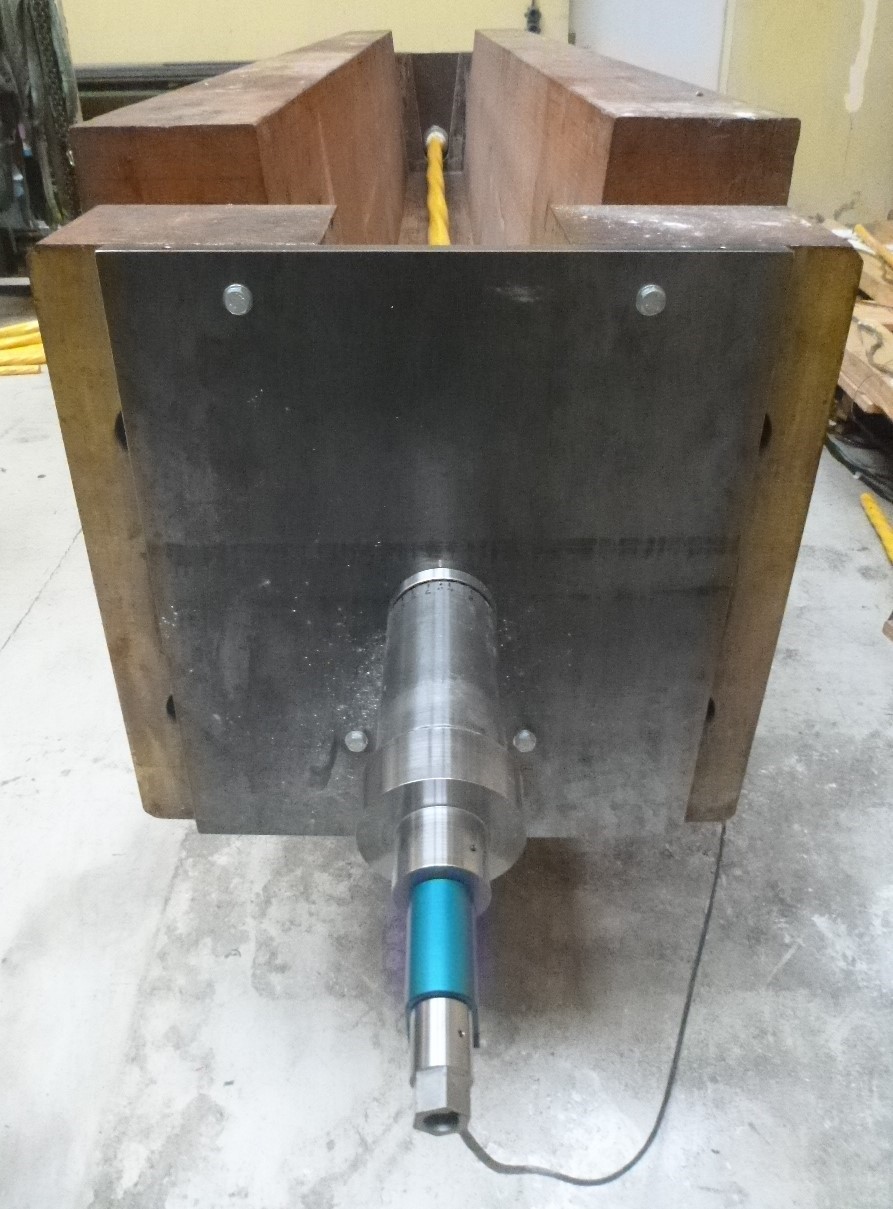
torsion test bench
A torsion test bench is a device designed to measure the resistance to torsion and stiffness of a sample. It is typically used in mechanical laboratories for strength and stiffness tests on materials such as metals, polymers, composites, and alloys. It consists of a base, a shaft, and a torsion system. It is commonly used for testing the strength of materials in torsion and bending, as well as for measuring stiffness and resistance.
Rotating torque: 0 to 100 Nm.
Force cell: 0 to 200 kN.
Bench length: 3 meters.
